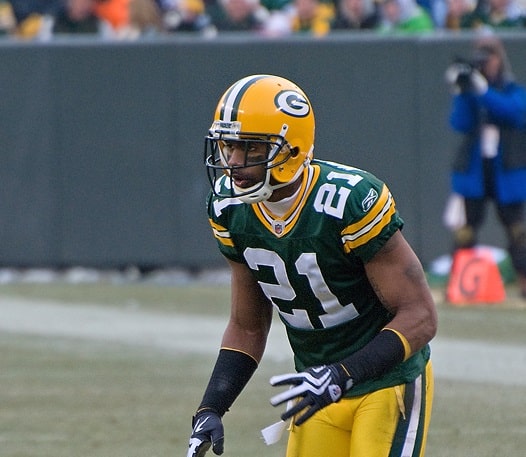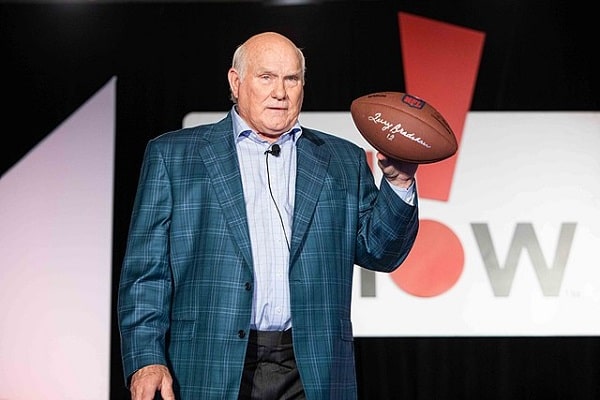When it comes to larger-than-life personalities in the NFL, few names resonate as strongly as Michael Irvin. Nicknamed “The Playmaker,” Irvin’s on-field prowess and off-field flamboyance have left an indelible mark on the history of American football. Yet, his journey is as much about personal redemption as it is about sports glory. This is a story of talent, tenacity, and transformation.
Youth and Collegiate Years
Michael Irvin was born into a large, tight-knit family on March 5, 1966, in Fort Lauderdale, Florida. Growing up as one among 17 siblings, he faced economic hardships that presented a series of obstacles. However, Irvin’s natural talent in athletics acted as a beacon, leading him to a scholarship opportunity at the prestigious University of Miami, known for its strong football program.
Irvin’s years at Miami from 1985 to 1987 were not merely about participation; they were about domination. He broke the school’s records for receptions and receiving yards, transforming himself into an undeniable force on the field. His extraordinary efforts were pivotal in propelling the Miami Hurricanes to secure the National Championship in 1987. Recognizing his exceptional skills, the Dallas Cowboys chose him in the opening round of the 1988 NFL Draft, signaling the onset of a remarkable career in professional football.
The Dallas Cowboys’ Golden Era
During the waning years of the 1980s and the dawn of the 1990s, the Dallas Cowboys underwent a renaissance. With coaching greats like Jimmy Johnson and subsequently Barry Switzer at the helm, the team was building a football empire. At the heart of this seismic shift were the iconic “Triplets”: quarterback Troy Aikman, running back Emmitt Smith, and, of course, Michael Irvin.
Irvin served as the ideal counterpart to Aikman’s surgical passing and Smith’s dynamic ground game. Combining raw athleticism with incredible speed and impeccable route-running skills, he became a formidable weapon for the team. His knack for clutch performances even earned him the nickname “The Playmaker.” Indeed, Irvin was instrumental in the Cowboys’ unparalleled achievements, which culminated in Super Bowl wins in 1992, 1993, and 1995.
The Off-Field Challenges
Irvin’s career wasn’t just a series of unmitigated triumphs; it was punctuated with personal and public tribulations. Known for his flamboyant lifestyle, Irvin found himself in legal trouble on multiple occasions, notably for drug possession. These off-field issues marred his image, and for a while, made him a controversial figure.
Irvin’s lowest point came in 1996 when he was arrested and subsequently suspended for the first five games of the 1996 NFL season. The arrest not only damaged his reputation but also cost him professionally.
The Redemption Arc
After retirement, Irvin began the long journey towards personal redemption. In 2009, he openly discussed his challenges on a reality TV show, demonstrating vulnerability and introspection rarely shown during his playing days. His faith, which had always been a cornerstone of his life, seemed to have renewed significance.
Michael also transitioned into a successful broadcasting career, contributing as an analyst for ESPN and later the NFL Network. His insights were deeply rooted in the practical knowledge of the game, making him a respected voice in football analysis.
More importantly, he’s been an advocate for players facing personal challenges, often acting as a mentor to young athletes. His charitable initiatives have also grown, ranging from youth development programs to philanthropic donations.
Legacy and Impact
Michael Irvin’s journey offers an essential lesson in duality—greatness tinged with flaws, talent juxtaposed with vulnerability. His story is a testament to resilience. While his career stats might be what many remember, his path to personal redemption is perhaps the most inspiring part of his legacy.
Irvin wasn’t just a receiver who could run routes and catch touchdowns; he was a human being who faced his demons and sought to change. While some may critique him for the mistakes of his past, the complete narrative of his life serves as an example that no matter the setbacks, personal or professional, redemption is possible.
It’s often easy to summarize athletes by their on-field accomplishments, forgetting that they, too, are human beings subject to the same trials and tribulations as everyone else. In the case of Michael Irvin, the complete story is not just about the touchdowns and Super Bowl rings; it’s about a man who, despite his flaws, continually strives for betterment—on the field and off it.
Michael Irvin, “The Playmaker,” remains an indelible part of the NFL’s rich history. Yet, his legacy is multi-dimensional, touching on themes of resilience, redemption, and personal growth that resonate far beyond the football field.




